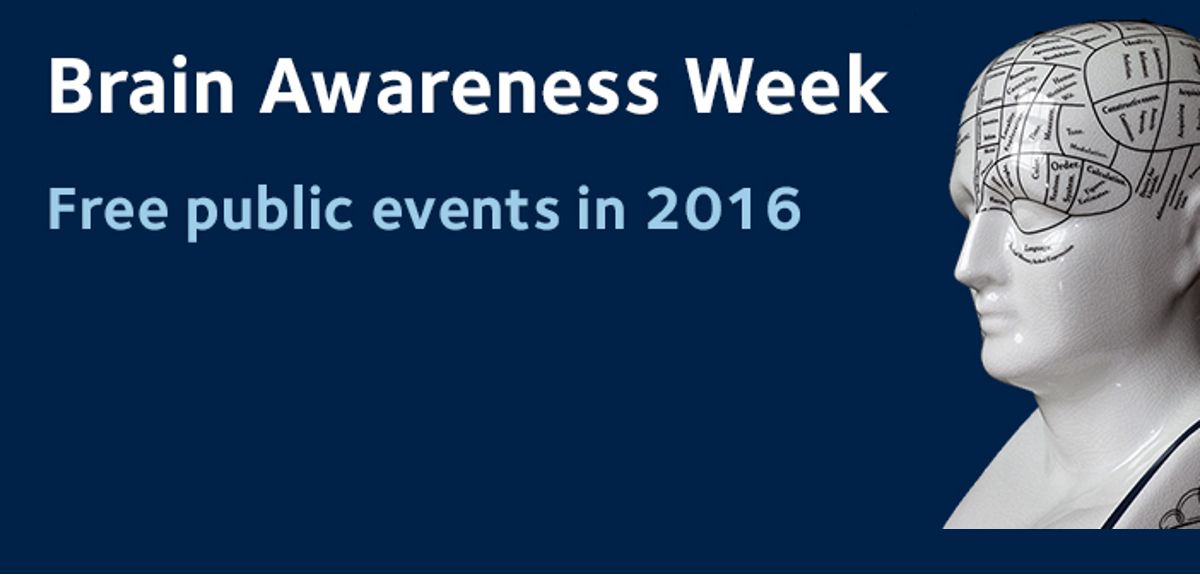
Opening up the Brain
Oxford's Brain Awareness Week, 14 - 20 March, is a chance to find out more about the way our brain works and some of the more surprising effects its complex mechanisms. There’s even an opportunity to take part in psychological research. The week aims to help people find out more about the brain and about some of the many Oxford University research projects that study the structures, processes, and outcomes of our brain and the factors, treatments and behaviours that affect it.
If you can't make it to the events for any reason, you'll find some of our videos, podcasts and links below. If you can make it, we'll see you there!
The brain is always fascinating, sometimes confounding and occasionally downright strange. If you want to know your own mind better, these events are for you.
Nicholas Irving, co-ordinator of Oxford Neuroscience
The free events include:
Public talk: 'Our Perception of Pain', Professor Irene Tracey
Museum of Natural History, Oxford
Tuesday 15 March 2016, 19.00–20.30 (Booking required, tickets free)
Professor Irene Tracey addresses issues including: Can we really see someone’s pain? Is it true that you get the pain you expect? How do anaesthetics produce altered states of consciousness so you don’t feel pain?
If you can't make it...
See all Oxford podcasts from Irene Tracey.
In this series of videos from the Wellcome Trust, Professor Tracey talks about pain.
Interactive activities: Light, Sleep & Brain Rhythms
Ashmolean Museum, Oxford
Thursday 17 March 2016, 10.00–14.00
Learn more about how our brains are affected by light and dark, and what this means for our sleep.
If you can't make it...
Research in conversation: Professor Russell Foster
Public talk: 'Gastrophysics', Professor Charles Spence
Museum of the History of Science, Oxford
Thursday 17 March 2016, 19.00–20.30
Professor Charles Spence on the world of ‘multisensory dining’: how taste and soundscapes combine to shape our eating experience.
If you can't make it...
Interactive research: The Genetics of Being Social
Oxford University Museum of Natural History, Oxford
Saturday 19 March 2016, 10.00–17.00 & Sunday 20 March 2016, 13.00–17.00
Why do some of us find it easier than others to understand and get along with people? Help researchers from Oxford University’s Department of Experimental Psychology test if it’s all in your genes. This drop-in event is for ages 18+.
Interactive activities: Brain Hunt
Ashmolean Museum, Oxford
Saturday 19 & Sunday 20 March 2016, 10.00–16.00
A packed programme of activities for all ages in various parts of the Museum. Find out about the physical, soulful, mechanical and creative brain!
Public talk: 'The Visual Brain - The House of Deceits of the Sight', Professor Christopher Kennard
Ashmolean Museum, Oxford
Saturday 19 March 2016, 12.00
Come and find out more from the Head of the Nuffield Department of Clinical Neurosciences, an expert in visual perception – what we see and what we think we do.
If you can't make it...
PODCAST: Chris Kennard on Art, Illusions and the Visual Brain.
Interactive activities: Brain Aware
Museum of the History of Science, Oxford
Sunday 20 March 2016, 12.00–17.00
An afternoon with Oxford researchers, suitable for age six and upwards.
Brain Awareness Week is supported by the University of Oxford and the National Institute for Health Research Oxford Biomedical Research Centre. Find out more at: www.neuroscience.ox.ac.uk.